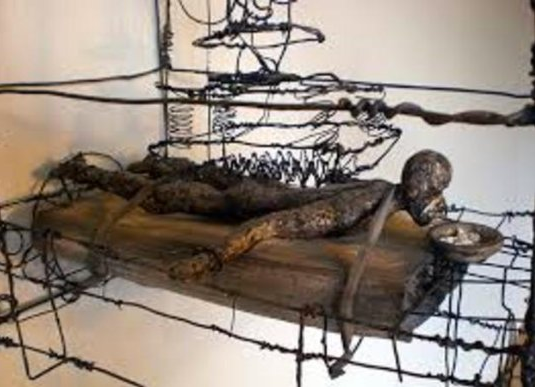By HECTOR VILA
for my mother, on her 91st birthday, 12/19, who tells me she wishes she were 30 so that she could once again teach kids about this world today and take to the streets
“I don’t know. I don’t think I can go to study abroad in Paris,” she says and hesitates and grins.
When she sits across from me, her shoulders are barely higher than my desktop. Her hijab frames her face perfectly: wide, inquisitive, dark eyes that are alive, dancing, penetrating; high cheekbones; her lips are full and when she smiles she gets small creases at the sides of her mouth that resemble ripples edging from the shore of a serene lake.
I ask why not?, though I know the answer: She’s from Sierra Leone and a Muslim.
“Even when I flew to Kenya,” she continues, still smiling, “the police at the airport stopped me — it was very scary — because they thought I was Somali. No one is safe — no one that looks like me. An African Muslim.”
She giggles a bit, this time as if to call attention to the tragic irony of it all.
This young woman, but nineteen, left her family and traveled from Sierra Leone to Hong Kong to the United States to the state of Vermont andMiddlebury College for an education. She’s earned scholarships all the way. She’s brilliant and will undoubtedly do great things in the future.
But reality is harsh; the world she — and all of us, really — navigate is dark, foreboding, threatening, many parts forbidden.
How then do we justify this world to our students? What do we tell her? Where’s opportunity now?
What is the educator’s role in addressing the harsh reality that not everyone has the right and capacity to move about freely in what we still falsely call the free world?


